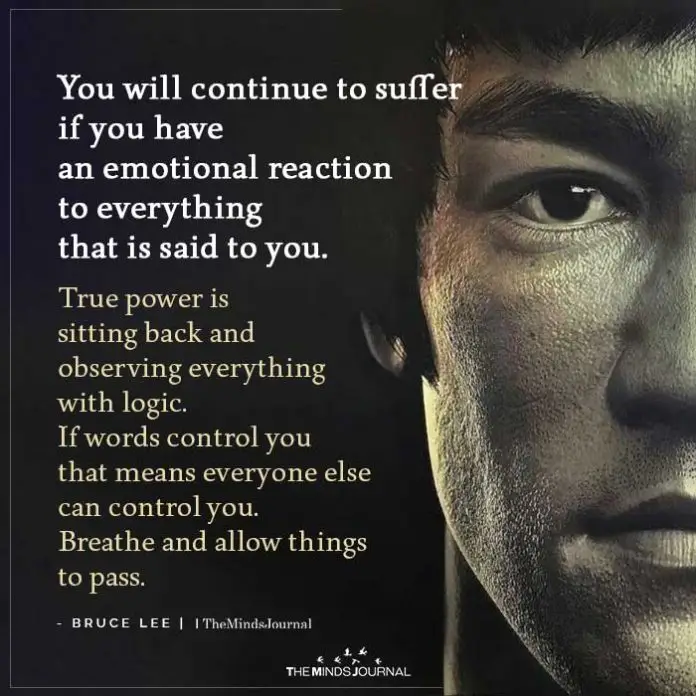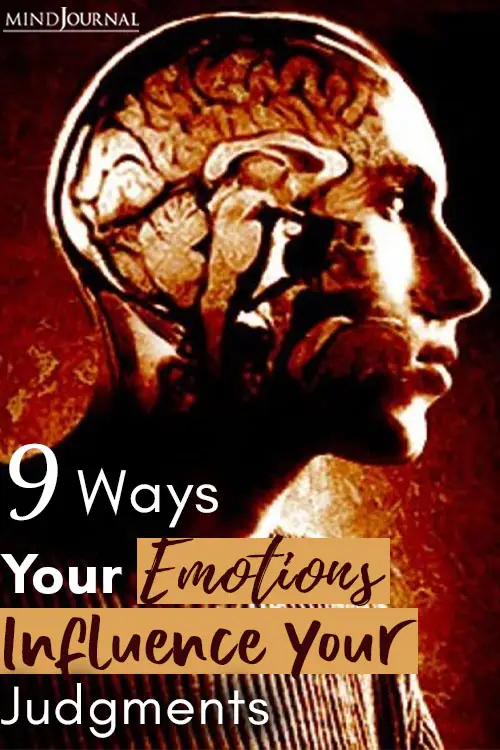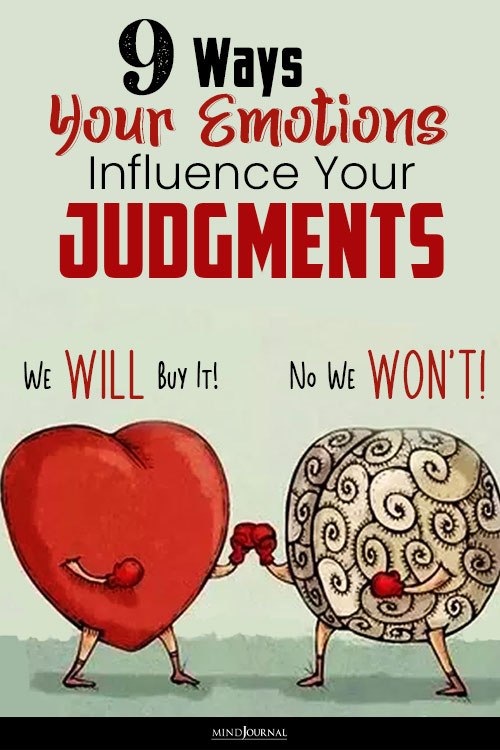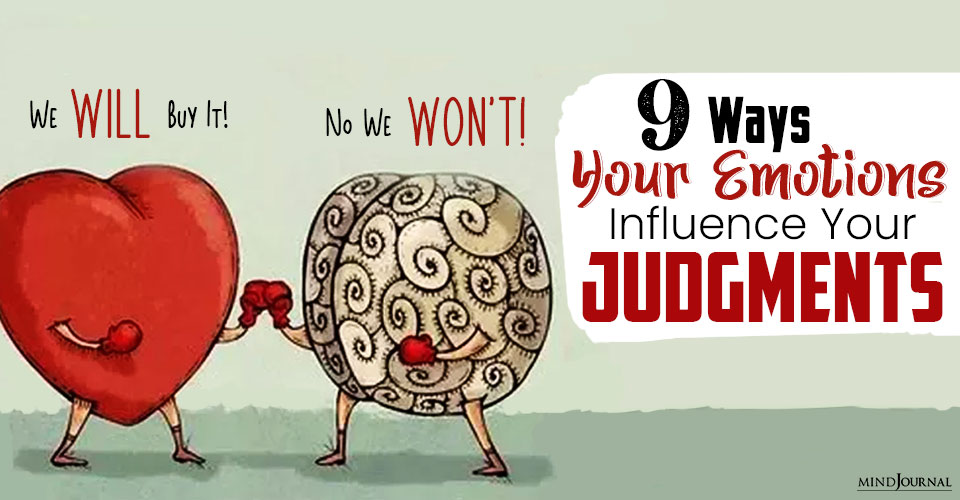Did you know that your emotions influence judgments and the way you think? Your actions and how you deal with certain situations is related to how you feel. Let’s take a closer look at emotions and decision making.
Individual decisions are best understood as the interactions between reason and emotion. When we are calm, slow rational thinking guides our decisions. However, strong emotions place a constraint on clear thinking.
For example, before an unpleasant encounter, you may decide to keep your cool. However, when provoked to anger, you lash out without pausing to consider the consequences.
Our emotional reactions to our daily decisions may be useful in directing our attention toward what matters the most. But, strong feelings may lead us to make unwise decisions.
Here are nine ways your emotions influence judgments
1. A narrow mindset.
Strong feelings (e.g., anger, fear, or craving) create a kind of “tunnel vision.” For instance, anger narrows attention such that current feelings, thoughts, impulses would be given extra weight, whereas future goals, ambitions, or plans seem less consequential.
2. Jumping to conclusions.

A worried person is motivated to reduce uncertainty and eliminate discomfort. The decision is guided by a selective information search, limited consideration of alternatives, and rapid evaluation of data (e.g., the case of conspiracy theory).
3. Attention bias.
As William James observed, “what holds attention determines action.” Individuals tend to process information in a manner that is consistent with their views of the world and themselves. For example, a person with low self-esteem is highly sensitive to being ignored by other people, and they constantly monitor for signs that people might not like them.
4. Mood-congruent memory.
Our current emotional state helps recall experiences that had a similar emotional tone. When we are in a happy mood, we tend to recall pleasant events and vice versa. This is because moods bring different associations to mind. For ample, sad music is a powerful trigger for nostalgic memories of foregone times.
5. Emotional contagion.
We tend to “catch” the emotions (sad or happy) of others when perceiving their emotional expressions. And this process assists us in understanding the feelings of others. For example, when you have a casual conversation with someone anxious, you tend to walk away from the encounter feeling somewhat anxious yourself.
Related: Why Your Emotions Are Not “Things” In Your Brain
6. Background moods.
Emotions triggered by an event completely unrelated to a new situation can influence our thinking and decisions. For example, on sunnier days, we tend to tip more at restaurants and express higher levels of overall happiness.
7. An urge to blame.
When we are hurt and angry, we want someone to be blamed (or held responsible) for our pain. We feel superior by blaming others. It pleases our ego to believe that any bad event is someone else’s fault.
8. Time perception.
Time estimates can be distorted by our emotions. When we are anxiously waiting for something to happen, we experience a slower passage of time. Time flies when you are having fun.
9. Projection bias.
Typical emotions are essentially transient. What comes up often comes down. However, people tend to mispredict the short duration of emotional response. For example, heartbroken people are unable to anticipate the decay of their emotions. One of the reasons for adolescents’ high risk for suicide is because when they feel pain, they lack the life experience to know it is temporary.
What is the take-home lesson? Certain vulnerable situations tend to trigger impulsive choices. By becoming more aware of our emotions, we experience ourselves as free rather than victims.
If you want to learn more about emotions and decision making, take a look at this video:
Now that you know your emotions can influence your judgments, the best way to deal with it is by knowing and having an awareness of them. The more you understand your emotions, the better you will get at handling them and can also stop them from controlling you and your life.
Written by Shahram Heshmat Originally Appeared In Psychology Today










Leave a Reply
You must be logged in to post a comment.